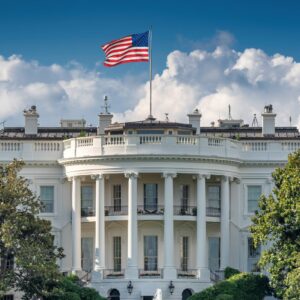Cautions Administration about Impediments to Affordable Financial Advice
 WASHINGTON, D.C. – As efforts progress to implement a 2022 retirement security law to deliver tens of billions in new retirement savings, the Insured Retirement Institute (IRI) is urging the Biden Administration to work with Congress to consider additional measures to alleviate workers’ and retirees’ retirement anxiety.
WASHINGTON, D.C. – As efforts progress to implement a 2022 retirement security law to deliver tens of billions in new retirement savings, the Insured Retirement Institute (IRI) is urging the Biden Administration to work with Congress to consider additional measures to alleviate workers’ and retirees’ retirement anxiety.
In a letter to the Biden Administration, IRI promoted the benefits of the Secure 2.0 Act, which analysis indicates will boost retirement savings by more than $70 billion.[1] “The SECURE 2.0 Act is helping America’s workers and retirees achieve economic equity, strengthen their financial security, and protect their income to sustain them throughout their retirement years,” wrote IRI President and CEO Wayne Chopus.
While the new law will enhance the retirement security of millions of workers and retirees, an April 2023 Gallup survey revealed that just 43 percent of respondents said they would have enough money to live comfortably in their retirement years. IRI said that this data demonstrates that more action is needed to soothe middle-class workers’ and retirees’ anxiety about accumulating sufficient savings to last throughout their retirement years.
IRI highlighted four measures from among 28 in the association’s 2023 Federal Retirement Security Blueprint. The four proposals would substantially expand access to workplace retirement plans and facilitate access to protected, guaranteed lifetime income solutions.
IRI also noted one potential impediment that the Administration is considering that could prove troublesome and constrain the positive impact of the improvements and enhancements made by the SECURE 2.0 Act and the other proposed legislation to further strengthen retirement security.
The Department of Labor’s (DOL) most recent regulatory agenda contains a new proposal, expected in August, that seeks to further expand the federal and state framework to regulate the standard of conduct for financial professionals who provide personalized advice about investments and insurance to retail consumers. A federal appeals court vacated a similar DOL rule in 2018, and no evidence has been produced to show that the current regulatory framework is ineffective in protecting retirement savers.
The anticipated regulation could particularly affect access to affordable professional financial advice for Black and Latino workers and retirees and increase the already large wealth gap for these workers.
“Federal and state regulators are actively and aggressively enforcing the existing regulatory framework of the best interest standard,” Chopus said. “Any expansion of the current regulations would stem the progress made in strengthening retirement security for many middle-class workers, retirees, and their families. It would deprive them of access to advice about retirement savings strategies and the right to work with their preferred financial advisor on terms that best fit their situations and needs.”
Chopus added, “IRI stands ready to work with your Administration and Congress on implementing the new retirement security law and advancing additional legislation to help America’s workers and retirees achieve a financially secure and dignified retirement.”
# # #
Contact: Dan Zielinski
[1] ACLI Analysis of the Joint Committee on Tax Revenue Estimate for the Secure 2.0 Act.
Stay Informed
Latest News
IRI VISION: DOL RULE WILL HARM RETIREMENT SAVERS
Today, the Biden Administration greenlit the U.S. Department of Labor’s (DOL) investment advice rule, which will hamper the efforts of…
LABOR DEPARTMENT RULE WILL WORSEN RETIREMENT INSECURITY
Millions of Consumers Stand to Lose Access to Professional Financial Guidance WASHINGTON, D.C. – Millions of retirement savers will lose…
STATEMENT BY WAYNE CHOPUS, PRESIDENT AND CEO, INSURED RETIREMENT INSTITUTE
WASHINGTON, D.C. – Today, the U.S. Department of Labor (DOL) will announce the final version of the “Retirement Security Rule:…